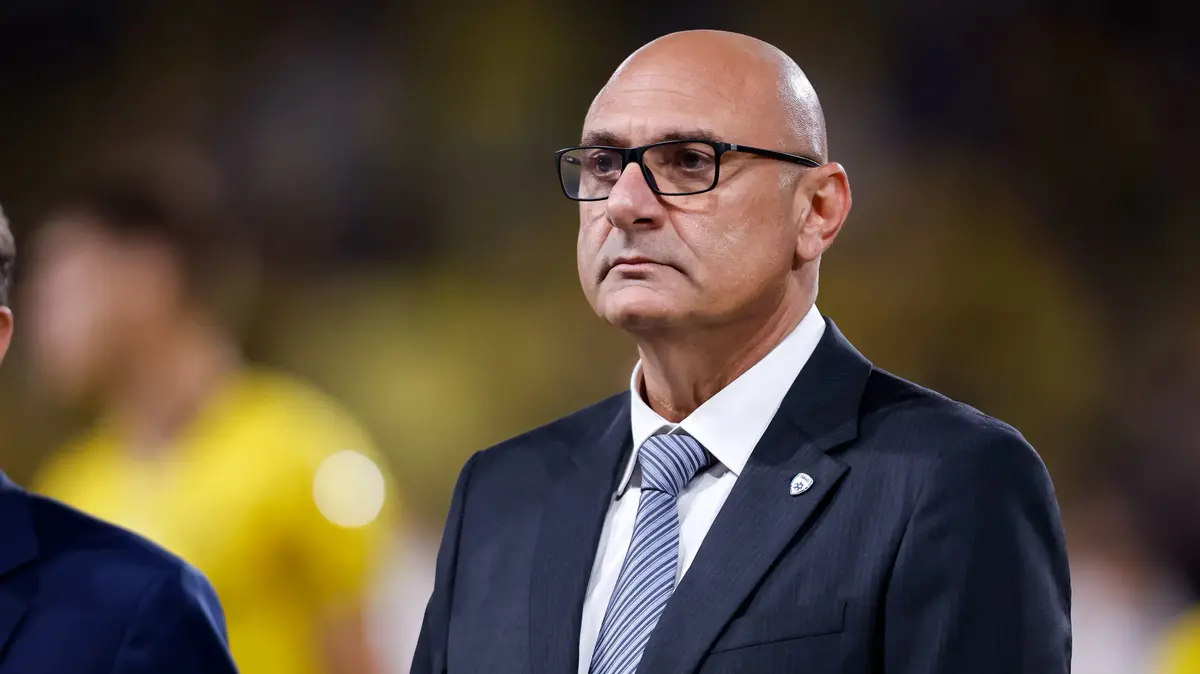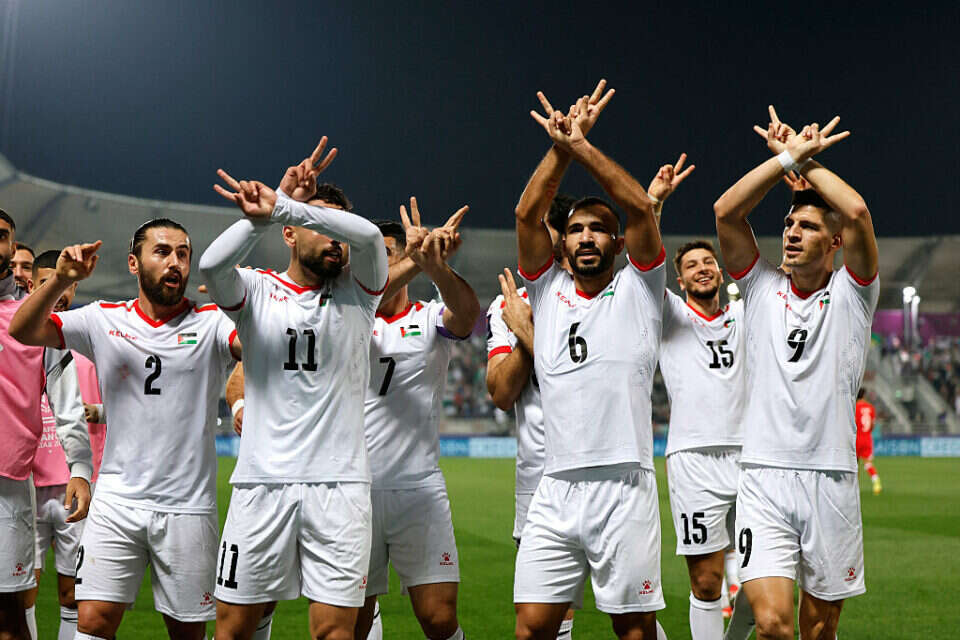- Click to share on Facebook (Opens in a new window)
- Click to share on Twitter (Opens in a new window)
- Click to share on LinkedIn (Opens in a new window)
- Click to email a friend (Opens in a new window)
Editor's Note: Amy Bass (@ bassab1) is a professor of sports studies at Manhattanville College and the author of "One Goal: A Coach, a Team, and the Game that Bmed a Divided Town Together" and "Not the Triumph but the Struggle: The 1968 Olympics and the Making of the Black Athlete ”, among other titles. The ideas expressed here are his alone. Read more opinion columns at CNNE.com/opinion.
(CNN) - Baseball has served as a hinge of time in the United States, a constant throughout the years, as James Earl Jones explains when he plays the writer Terence Mann in the 1989 film "Field of Dreams". people will come, ”he says to his new friend Ray, played by Kevin Costner, a man who has plowed his corn crop in Iowa to build an unprecedented baseball field. "And they will see the game, and it will be as if they have submerged themselves in magical waters."
The game, he concludes, "reminds us of everything that was once good, and could be again."
But now, due to the covid-19 pandemic, we can no longer go. We are not even invited. This Monday, the governors of New York, California and Texas said that professional sports may return in their states, but without spectators, as described in their respective reopening plans.
While many sports, like the Belmont Stakes horse racing, golf, soccer, try to find their way back, in many ways during this dark and terrible time, it is the absence of America's favorite pastime, and the complicated conversations about his return, including those related to player salaries, which marks our current time. Major League Baseball is considering a July 4 start for a shortened 82-game season without fans, something the governors of California and New York, states that have worked hardest to flatten their curves and make the numbers go into the Right direction, they have declared a key agreement for them to play ball.
Americans are trying to find our normalcy where we can, some of us working hard to achieve it, while others seem to just hope that it will magically reappear someday. For now, my normality is to think about baseball, because the game of my memories will have to serve as baseball, the United States of my dreams.
I've spent most of my professional life loving and writing about sports, and I don't want to see an NFL draft broadcast or a WNBA broadcast. I don't want to watch a documentary about Michael Jordan or a charity game of golf. I'm tired of supporting Mabel over Olive and I could never make Jelle's Marble Runs Sand Marble Rally my thing. The return of sports is not just about sports for the sake of themselves. It is more than that.
After completing a spring semester teaching sports at Manhattanville College in a world without them (sports media, sports ethics, sports and social change) and working with students on projects on the impact of covid-19 on sports, or their own Losing during the seasons as student athletes, it became clear to me that bringing a part of sports back into the void, without understanding how the rest of society is going to work, is not necessarily the step forward we hope it will be.
I want to see baseball. I want the Red Sox. I want to take my daughter back to Fenway. I want to watch a game and have an internal dialogue with my late father, who left me, among many other things, a deep understanding of pitching and hitting, and an understanding of why the infield fly rule is fair and correct despite my protests every time it happens.
Spectators are important stakeholders in sports. Our deep investments in our equipment go beyond the taxes that build palatial stadiums and the exorbitant prices of hot dogs, beers and parking. They help build a community, creating, along with jobs and common causes around a shared goal, a sense of belonging, whether you're sitting in the park or on the couch.
We saw this clearly in the days after the terrorist attacks of September 11, 2001, when thousands returned just 10 days after the fall of the towers in New York, fighting the fear of being in large crowds to see the recipient of the Mets Mike Piazza elevate his team to a 3-2 win over the Atlanta Braves, bringing with it not only the hearts of New Yorkers (those of Yankees fans who normally hate the Mets, included) but those of an entire nation .
Baseball without fans, we know, is not entirely without precedent. In the wake of the riots in Baltimore after Freddie Gray's death in 2015, the White Sox faced the home team in an empty stadium. With the sounds of the game magnified for those of us we see on television, the bittersweet nature of those empty seats was evident from the start when Baltimore first baseman Chris "Crush" Davis hit a three-run homer, the Kind of a hit that Bull Durham "Crash" Davis would have said he had a flight attendant on board because he was traveling at the speed of an airplane.
When the ball finally landed, there was no one there to claim it, no scene where an older boy pushed a gloved boy to grab the trophy, only to be embarrassed by those sitting around him until he handed the ball over to him to the smallest, cheers erupt and everything is fine in the world.
We have been a nation without baseball before. Both the First and the Second World Wars forced the suspension of several seasons, creating a vacuum so great that the powers made a concession: the women began to play baseball.
But without an audience in the stands, what does sports mean? We cannot talk about sports without its fans. They are an integral part of the world of sports, stakeholders like any other. Eliminating them is removing a critical element from the passionate nation that is the United States, in which many of us do much more than watch the game, and we get upset when interrupted, because we feel part of something bigger than any of us, something we cannot create on our own. Just as watching Jackie Bradley Jr. twist his body and jump off the ground to make a save-the-game catch is part of being a Red Sox fan, so is listening to Jerry Remy tell us from the booth that “They're at Fenway. "
However, it is precisely these moments that make it unthinkable to allow baseball to return with its fans, understanding that they not only react to the players and play on the field, but they react among themselves. It took just one soccer match in Italy, just 90 minutes (plus addition time) as virus-filled particles flew into people's mouths (GOOOOLLLLLLLLLLL!) Every time the ball entered the net, wreaking havoc in Bergamo , a town that only days before had been full of pride for its beloved Atalanta against Valencia in a match in the Champions League.
The complications for baseball's return, of course, go beyond the role of the viewer. As California Governor Gavin Newsom has made clear, baseball is not just about the nine boys we see on the field, but the accompanying workforce. There is much to discover beyond putting the players on the field and leaving the spectators at home, and when we solve those things, we will be doing the hard work we must do to make our society complete again.
Recovering baseball should be our reward for doing this well, not a goal to guide the way. When we replace the parts of society that have been fractured by the covid-19 or, rather, that has been exposed as broken, we will return to sport. Not otherwise.
Because how can we go back to the field, to sports, to the movies, or even to school, or any of the things that make us feel "normal", until we do things right, until we face each other in levels with what precedes us? Some will never return, especially the more than 90,000 lives we have lost, a large number of people, who if they were still with us and had not been lost to a delayed and chaotic response to a global pandemic, it would not take one but two of them. America's largest baseball stadiums to house them. And a quantity that today represents a suffering so deep that it can never be contained.
Baseball Coronavirus









